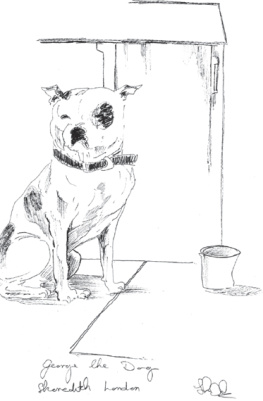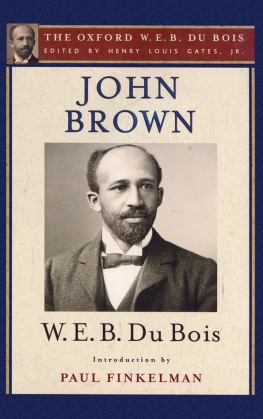Notice de la Vie et des Ecrits de George Louis Le Sage (English)
Table of Contents
[137] THE biographical sketch here announced, has more than an ordinary claim to the attention of the reader. The subject of it is a philosopher, who, beside the peculiarities incident to genius, had several that belonged exclusively to himself. These he was careful to study and explain; and the notes which he has left behind him, seem to entitle him to the rare eulogy, of having given an accurate and candid delineation of his own character. His biographer, too, had the advantage of being intimately acquainted with the person whom he has undertaken to describe, and has been attentive to mark whatever appeared singular in the constitution or progress of his mind.
George Lewis Le Sage was born at Geneva in 1724, to which city his father, a native of France, had for some time retired, and lived by giving private lessons in mathematics and natural philosophy. The son was early initiated in these studies receiving, at the same time, in all the branches of literature, as liberal a course of education as his father's limited income would allow. A marked opposition, however, in their tastes and intellectual propensities, prevented the son from reaping from his father's instructions all the advantage that might have been expected. The old man was well informed; but his knowledge was very much confined to facts, and was accompanied with little tendency to reason, or to generalize. His son, again, even when a boy, delighted in connecting his ideas by general and abstract principles, and was not more inquisitive about facts, than about the relations in which they stood to one another. This propensity arose, in some measure at least, from the weakness of his memory, which forced him to study the most just and constant connexions among things, in order to prevent both words and ideas from escaping his recollection entirely. 'It was thus,' says M. Prevost, 'that we saw him, in his maturer years, and particularly in his old age, avoiding, with the greatest care, whatever could trouble the order of his thoughts, and substituting, with much art, a logical series of mental operations to the effort which the recollection of a single unconnected fact would necessarily have cost him'.
The history of Le Sage does indeed illustrate, in the dearest manner, the relation between the faculties of memory and abstraction, and the power which each has to supply the deficiencies [138] of the other. Generalization gives us a command over our ideas more complete than we can ever derive from the mere efforts of memory: It holds in its hand the clue by which this latter faculty must be guided through the labyrinth of things; and there is room to doubt, whether the power thus given to the mind is not the main source of the delight arising from abstract and philosophic speculation. Were the memory in itself to become so perfect, as to be independent of connecting principles, generalization would not be necessary, and perhaps would rarely be attempted. Two minds, both disposed to the acquisition of knowledge, could hardly be constituted with less conformity to one another, than those of Le Sage and his son. When the young man was labouring to classify his ideas, and to reduce them under general heads, the father was perpetually starting objections to his rules, and bringing forward the instances most difficult to be reduced to any general principle of arrangement. This seemed to proceed, not from any desire to embarrass or distress his son, but from a dislike which he had conceived (singular, doubtless, in a mathematician) to general methods, and to all systems whatsoever. The education, therefore, which he gave his son, was truly antiphilosophic, and certainly had no tendency to produce that love of order, system and method which characterized him through his whole life. But the mind may be constituted with some powers so weak, that discipline cannot improve them; and with others so strong, that discipline, when most perverse, cannot destroy them. Nothing could give to young Le Sage a memory nearly equal to that of ordinary men; and nothing could take from him a delight and skill in generalization, which were vastly superior.
We must not imagine from this, that the whole plan of the old man in the education of his son, was as perverse as in the case here mentioned: the information he communicated, even with so little of method and arrangement to connect the parts together, was of great value to his son, who, through his whole life, used to speak with much gratitude of his father's attention to his instruction, and of the pleasure and advantage he derived from his conversation.
The inquisitive turn of Le Sage soon displayed itself in questions, to which he did not always receive the kindest or most satisfactory answers, especially from his mother, who appears to have had none of the gentleness and patience necessary for the instruction of children. This led him to think of having recourse to trial and experience, and to interrogate nature rather than any other instructor. One of his first attempts of this sort [139] has been recorded in his notes, and, from the singularity of it, deserves to be remembered.
At the time we are now speaking of, the Sabbath was observed at Geneva, with a gloom and austerity of which we in Scotland can probably form a more correct notion than the inhabitants of any other country in Christendom. Le Sage felt some curiosity to know whether the Author of Nature still continued to impose on himself the same law that originally marked the institution of the day of rest. It would have puzzled the first philosopher in Europe to think of any method by which this question could be brought to the decision of experiment; but the ingenuity of our young inquirer soon suggested an expedient. He measured, with great care, the increase of a plant, day after day, in order to discover whether it would cease growing on the Sabbath. The result could not fail to solve the difficulty, and to convince the young man, that though the work of creation might terminate, the work of Providence is never interrupted. The pensive and contemplative turn of Le Sage was increased by the circumstance of his health being delicate, and his temperament too weak, to allow him to join in the fatiguing exercises which amused and occupied his companions. Great modesty, sensibility, and reserve, added, as far as his mother was concerned, to the want of comfortable society at home, condemned him almost to continual solitude, and rendered the acquisition of knowledge his only enjoyment. Thus, from circumstances apparently unfortunate, much of his intellectual excellence may be supposed to have arisen.
It is material to observe every circumstance that gave a determination to a mind that has in any thing attained celebrity; but it is very rarely that this can be done so well as in the instance we have now before us. The father of our young philosopher had but few books; and almost the only entire work on physics, which he possessed, was that of Bernard Palissy. The writings of a man who was self-instructed, -who had paid no regard to authority, when not supported by experience, -who had made valuable discoveries, and reached some very sublime and just notions concerning the structure and the revolutions of the globe, could not fail to make a strong impression on a young mind already inspired by the love of knowledge. However, though Le Sage became a great cosmologist, it does not appear that geology, of which Palissy was in some measure the founder, ever attracted much of his attention.












